
Hepatology Communications
Scope & Guideline
Advancing liver health through innovative research.
Introduction
Aims and Scopes
- Liver Disease Mechanisms and Pathophysiology:
Research exploring the cellular and molecular mechanisms underlying various liver diseases, including nonalcoholic fatty liver disease (NAFLD), alcoholic liver disease (ALD), hepatitis, and hepatocellular carcinoma (HCC). - Clinical Management and Therapeutics:
Studies focused on the clinical management strategies for liver diseases, including the effectiveness and safety of pharmacological treatments, surgical interventions, and emerging therapies. - Epidemiology and Public Health:
Research investigating the epidemiological trends, risk factors, and public health implications of liver diseases on a global scale. - Innovative Diagnostic Approaches:
Development and validation of novel diagnostic tools and biomarkers to enhance the detection and monitoring of liver diseases. - Patient-Centered Care and Quality of Life:
Investigations into how liver diseases affect patients' quality of life, including psychosocial aspects and health-related quality of life outcomes. - Translational Research and Experimental Models:
Utilization of experimental models and translational research approaches to understand liver pathophysiology and to develop new therapeutic strategies.
Trending and Emerging
- Metabolic Dysfunction-Associated Liver Disease (MASH/MASLD):
Research on metabolic dysfunction-associated steatotic liver disease is gaining traction, reflecting the increasing prevalence of obesity-related liver conditions. - Immunotherapy and Targeted Therapies:
There is a growing interest in the role of immunotherapy and targeted treatments for liver cancer, particularly hepatocellular carcinoma, highlighting advancements in personalized medicine. - Gut-Liver Axis Research:
Studies exploring the gut-liver axis, including the impact of gut microbiota on liver health and disease progression, are emerging as a significant area of investigation. - Digital Health and Telemedicine:
The integration of digital health technologies and telemedicine in liver disease management is on the rise, particularly in response to the COVID-19 pandemic. - Health Disparities and Social Determinants of Health:
Research addressing health disparities in liver disease, particularly among marginalized populations, is becoming increasingly prominent as awareness grows. - Artificial Intelligence and Machine Learning:
The application of AI and machine learning in diagnosing liver diseases and predicting outcomes is a rapidly growing area, reflecting technological advancements.
Declining or Waning
- Traditional Risk Factors for Liver Disease:
There appears to be a waning emphasis on traditional risk factors for liver disease, such as obesity and alcohol consumption, as newer studies focus on metabolic dysfunction and genetic predispositions. - Conventional Biomarker Studies:
Research centered on established biomarkers for liver disease is decreasing, as innovative diagnostic methods and multi-omics approaches gain prominence. - Single Disease Focus Studies:
There is a noticeable decline in studies that focus exclusively on single liver diseases; instead, there is a shift towards comprehensive studies that address multiple liver conditions and their interrelationships. - Invasive Diagnostic Procedures:
The use of invasive diagnostic procedures, such as liver biopsies, is decreasing in favor of non-invasive methods like elastography and blood-based biomarkers.
Similar Journals
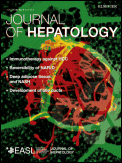
JOURNAL OF HEPATOLOGY
Advancing Liver Health Through Pioneering ResearchJOURNAL OF HEPATOLOGY, published by Elsevier, stands as a preeminent source in the field of Hepatology, with its impact underscored by a remarkable 2023 Category Quartile of Q1 and a Scopus rank of 3rd out of 82 journals, placing it in the 96th percentile for the discipline. Since its inception in 1985, this journal has been a vital conduit for the dissemination of pioneering research, clinical studies, and reviews related to liver diseases and their impact on global health. Although it currently does not offer open access options, the journal is committed to providing top-tier content to its readership—researchers, medical professionals, and students—in order to advance knowledge and foster innovation in hepatology. With a broad and inclusive scope, it aims to cover significant breakthroughs, therapeutic advancements, and epidemiological studies, continually pushing the boundaries of understanding in liver health. The journal is based in Amsterdam, Netherlands, and remains an essential resource for those dedicated to the progression of hepatologic science.

Journal of Clinical and Translational Hepatology
Empowering healthcare through liver-focused scholarship.Journal of Clinical and Translational Hepatology is an esteemed publication dedicated to advancing the field of hepatology through innovative research and clinical insights. Published by XIA & HE PUBLISHING INC, this journal connects researchers and healthcare professionals in the exploration of liver diseases and their management. With an impact factor that reflects its significant contribution to the discipline, the Journal holds a commendable Q2 classification in Hepatology as of 2023, and it ranks highly in both Gastroenterology and Hepatology categories on Scopus, positioning it within the top 80th percentile of its field. Although the journal is not open access, it provides its audience with invaluable information, encouraging collaboration that aims to translate clinical findings into transformative patient care. With a publication history spanning from 2013 to 2024, the Journal of Clinical and Translational Hepatology has established itself as a vital resource for researchers, clinicians, and students alike, making it a prominent voice in the hepatological community.
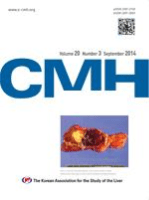
Clinical and Molecular Hepatology
Empowering global knowledge exchange in liver research.Clinical and Molecular Hepatology, published by the Korean Association for the Study of Liver, stands at the forefront of hepatology, offering a significant platform for research and innovation in liver diseases. Established in 1995 as an open access journal, it aims to disseminate high-quality research that spans the fields of hepatology, molecular biology, and medicine. With an impressive impact factor ranking it in the Q1 category for 2023 in both Hepatology and Molecular Biology, the journal facilitates a rich exchange of knowledge among professionals, researchers, and students globally. With its dedicated coverage from 2012 to 2024 and exceptional Scopus rankings placing it within the top 10% of journals in its field, Clinical and Molecular Hepatology is an indispensable resource for advancing the understanding and treatment of liver conditions. Located in Seoul, South Korea, the journal emphasizes rigorous peer review and is committed to enhancing clinical practice and molecular research, making it an ideal venue for groundbreaking studies in liver health.

Gastrointestinal Disorders
Innovating Insights in Gastroenterology and BeyondGastrointestinal Disorders is a prominent open-access journal published by MDPI, based in Switzerland, that focuses on the latest research and innovations in the fields of gastroenterology, hepatology, and immunology. Since its inception in 2019, the journal has provided a vital platform for researchers and professionals to disseminate their findings, engaging with a global audience keen on advancing knowledge in gastrointestinal health. With a dedicated commitment to high-quality, peer-reviewed articles, Gastrointestinal Disorders has gained recognition in 2023, achieving Q3 status in gastroenterology and notable rankings in several other categories, including a respectable position in the quartiles for hepatology, immunology, and oncology. Despite its recent establishment, the journal has quickly become a valuable resource, facilitating open access to critical insights in the study of gastrointestinal diseases and their management, ensuring that emerging research is readily available to inform clinical practice and educate future professionals.

EUROPEAN JOURNAL OF GASTROENTEROLOGY & HEPATOLOGY
Advancing knowledge in digestive health.The EUROPEAN JOURNAL OF GASTROENTEROLOGY & HEPATOLOGY, published by LIPPINCOTT WILLIAMS & WILKINS, serves as a key platform for disseminating cutting-edge research in the fields of gastroenterology and hepatology since its inception in 1989. With its ISSN 0954-691X and E-ISSN 1473-5687, the journal has established a prominent reputation, as reflected in its 2023 rankings, placing it in Q2 for Gastroenterology and Q3 for Hepatology. It is ranked #75 out of 167 in gastroenterology and #39 out of 82 in hepatology according to Scopus, highlighting its importance in advancing knowledge and clinical practices. While it does not currently offer open access options, the journal remains essential for researchers, healthcare professionals, and students seeking to stay abreast of significant developments and innovations in digestive health. By providing rigorous peer-reviewed articles, the EUROPEAN JOURNAL OF GASTROENTEROLOGY & HEPATOLOGY continues to contribute to the understanding and treatment of gastrointestinal and liver diseases, making it a vital resource in the medical community.
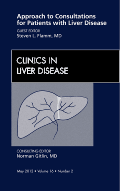
Clinics in Liver Disease
Elevating standards in the study of liver diseases.Clinics in Liver Disease is an esteemed peer-reviewed journal published by W B Saunders Co-Elsevier Inc, dedicated to advancing the field of hepatology. Established in 1997 and covering a broad range of topics within liver disease research, this journal serves as a vital resource for researchers, clinicians, and students engaged in the study of liver health and diseases. With a commendable impact factor placing it within the Q2 category in Hepatology and ranking #32 out of 82 in the Scopus classifications, it consistently disseminates high-quality research and clinical insights. The journal’s commitment to promoting understanding and management of liver diseases is reflected in its rigorous editorial standards and comprehensive review processes. Although not an open-access publication, Clinics in Liver Disease offers subscription options that ensure accessibility to up-to-date research and reviews critical for both academic and clinical success.

Canadian Liver Journal
Exploring New Frontiers in Liver Disease Management.Canadian Liver Journal, published by University of Toronto Press Inc., offers a dedicated platform for the dissemination of cutting-edge research in the field of Hepatology. With an E-ISSN of 2561-4444, this journal plays a pivotal role in advancing knowledge related to liver diseases and therapies, currently ranked in the 3rd quartile (Q3) for the 2023 category in Hepatology—a reflection of its growing influence in the biomedical research community. The journal, which has been in circulation since 2018 and sets its sights on contributing valuable insights until 2024, aims to engage researchers, clinicians, and students alike by providing a rigorous peer-reviewed environment for sharing findings, case studies, and reviews pertinent to liver health. Through its commitment to excellence and scholarly impact, the Canadian Liver Journal serves as an essential resource for those dedicated to combating liver diseases and enhancing patient care.
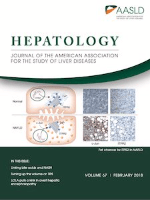
HEPATOLOGY
Leading the way in liver disease research and clinical practice.HEPATOLOGY is a premier scholarly journal dedicated to advancing the field of liver research and clinical practice. Published by Lippincott Williams & Wilkins, this journal boasts an impressive impact factor and holds a prestigious position as one of the top-ranked publications in both Hepatology (Q1) and Medicine (miscellaneous, Q1) categories as of 2023. HEPATOLOGY, with its commitment to disseminating high-quality research since its inception in 1981, serves as an essential platform for researchers, clinicians, and students focusing on liver diseases, including hepatitis, cirrhosis, and liver cancer. The journal's editorial board comprises leading experts who guide the publication towards its objective of fostering innovation and collaboration in this critical area of health. Although it does not offer an open access model, HEPATOLOGY ensures that its comprehensive analyses, reviews, and groundbreaking studies are accessible to the global medical community. Join the discourse in hepatology and be a part of a transformative journey through this indispensable resource.
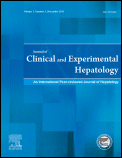
Journal of Clinical and Experimental Hepatology
Unveiling the latest in liver research and treatment.The Journal of Clinical and Experimental Hepatology, published by Elsevier - Division Reed Elsevier India Pvt Ltd, is a premier platform dedicated to advancing the field of hepatology. With an ISSN of 0973-6883 and an E-ISSN of 2213-3453, this journal has gained recognition for its impactful contributions to both clinical practice and scientific research in the domain of liver health. Ranking in the Q2 quartile for Hepatology in 2023 and positioned at 33rd out of 82 in Scopus’s Hepatology category, it reflects a robust impact factor and a commitment to publishing high-quality, peer-reviewed articles. Researchers, clinicians, and students can engage with a wealth of open-access content covering the latest advancements, challenges, and insights in hepatology, as the journal aims to disseminate knowledge from 2011 through 2025. Join the community of experts as we explore critical developments in the understanding and treatment of liver diseases.
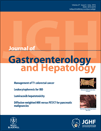
JOURNAL OF GASTROENTEROLOGY AND HEPATOLOGY
Innovative insights into digestive and liver health.Welcome to the JOURNAL OF GASTROENTEROLOGY AND HEPATOLOGY, an esteemed publication in the field of gastroenterology and hepatology, proudly published by WILEY. Established in 1986, this journal serves as a crucial platform for researchers, healthcare professionals, and students, presenting groundbreaking research and comprehensive reviews that drive advances in understanding and treating gastrointestinal and liver diseases. With a strong reputation evidenced by its Q1 ranking in gastroenterology and Q2 ranking in hepatology, this journal ranks impressively in the Scopus metrics - positioned at #22 out of 167 in gastroenterology and #21 out of 82 in hepatology, reflecting its contribution to scholarly excellence. Although it does not offer open access options, the journal’s rich archive and diverse topics make it indispensable for those dedicated to improving patient outcomes in these critical areas of medicine. Whether you are a seasoned researcher or an aspiring medical professional, engaging with this journal will keep you at the forefront of the latest developments and emerging trends in gastroenterology and hepatology research.